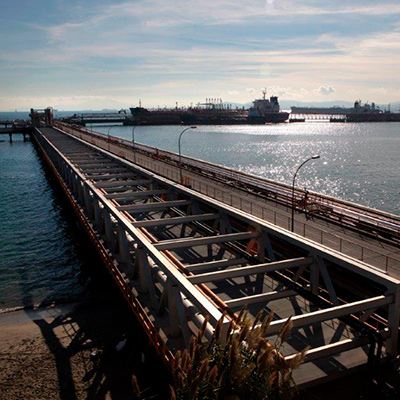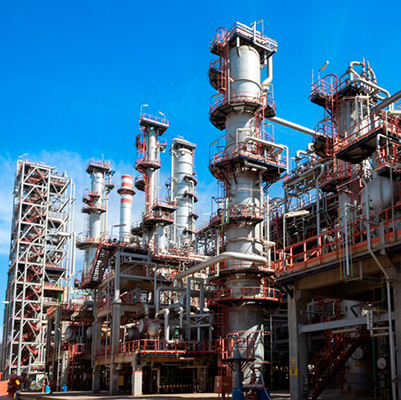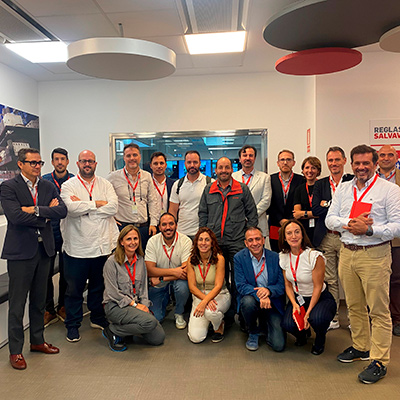- Today, the company presented the voluntary EMAS environmental declaration, which demonstrates Cepsa's commitment to sustainability, transparency, and dialogue with society.
- The La Rábida Energy Park achieved a 6.2% reduction in water usage compared to last year and an 8.1% reduction in the last three years
- In 2022, Cepsa Química completed the modification work at the Effluent Plant to comply with the demanding requirements of the best available techniques of the European reference document for common water treatment and management systemss
In the past year, both facilities invested 96 million euros in environmental improvement projects, especially those related to water management and the reduction of greenhouse gas emissions. Cepsa Química has been registered with EMAS for 15 years and is presenting this environmental statement. The La Rábida Energy Park has been carrying out this transparency exercise for 26 years.
Jorge Acitores, director of the La Rábida Energy Park, praised the commitment of all Cepsa's professionals in Huelva and the Environmental Department team in achieving the progress described in the declaration and noted: "The declaration we are presenting is an unquestionable commitment to society, and another step forward in Cepsa's energy transition and its customers' transition, which will place Huelva and Andalusia as European benchmarks."
Furthermore, Esther González, director of the Palos de la Frontera Chemical Plant, stressed that "during the 2023 financial year, we continue to make progress in our sustainability objectives, highlighting the initiative we have named "RETO," which, with the participation of all the factory's personnel, has become an important source of improvement in our environmental indicators and energy costs. We also continue to work on developing new projects, in line with our Positive Motion strategy, optimizing and being more efficient in our processes in order to reach net zero emissions by 2050."
Improvements in water and climate management
Both industrial centers have complied with the limits on atmospheric emissions established under their Integrated Environmental Authorizations. In the case of the La Rábida Energy Park, its sulfur dioxide (SO2) emissions are at the lowest levels in the historical series. It has also installed an electrostatic separator in the FCC unit, which will enable it to comply with the new legislation on air emissions. For its part, the Chemical Plant has focused its efforts to reduce emissions on further improving its energy efficiency, which has led to a 12% reduction in CO2 emissions per ton produced.
The company has a Circular Economy strategy recognized by AENOR certification and based on minimizing freshwater withdrawal, maximizing the use of waste as raw material and caring for biodiversity. Throughout 2023, the La Rábida Energy Park has achieved a 6.2% reduction in its water use compared to last year and an 8.1% reduction compared to 2021.
Furthermore, in 2022, Cepsa Química completed the project to modify the Effluent Plant to meet the stringent requirements of the best available techniques for common wastewater treatment and management systems in the chemical sector. In 2023, thanks to the dedication of the personnel of various departments of the facility, the operation was optimized, reaching a high level of compliance with the new discharge limits.
As can be seen from both statements, audited by AENOR, the La Rábida Energy Park and the Palos de la Frontera Chemical Plant achieved EMAS Environmental Statement validation, which recognizes organizations that have implemented a management system and have made a commitment to continuous improvement, verified by independent audits.
Additionally, the environmental declarations provide information on other aspects ranging from noise control to energy consumption, including the management of air emissions or training and awareness-raising activities for its own personnel and auxiliary companies. They are also available to the public and to institutions and organizations.
Cepsa, through Fundación Cepsa which was created in 2016, works proactively to protect and improve biodiversity in the surroundings of its production centers. An example of this is the recovery and enhancement of the Laguna Primera de Palos, a natural space where the wetland is preserved and environmental education activities and biodiversity projects are carried out. Moreover, following the agreement reached with the Huelva City Council, Fundación Cepsa has been a key player in the project to recover the biodiversity of the Cardeñas salt flats since 2023, which is a clear example of the coexistence of natural spaces and urban areas.
The company has set up the following e-mail address where all questions about the environmental declarations and their content can be answered: comunicacion.huelva@cepsa.com.



